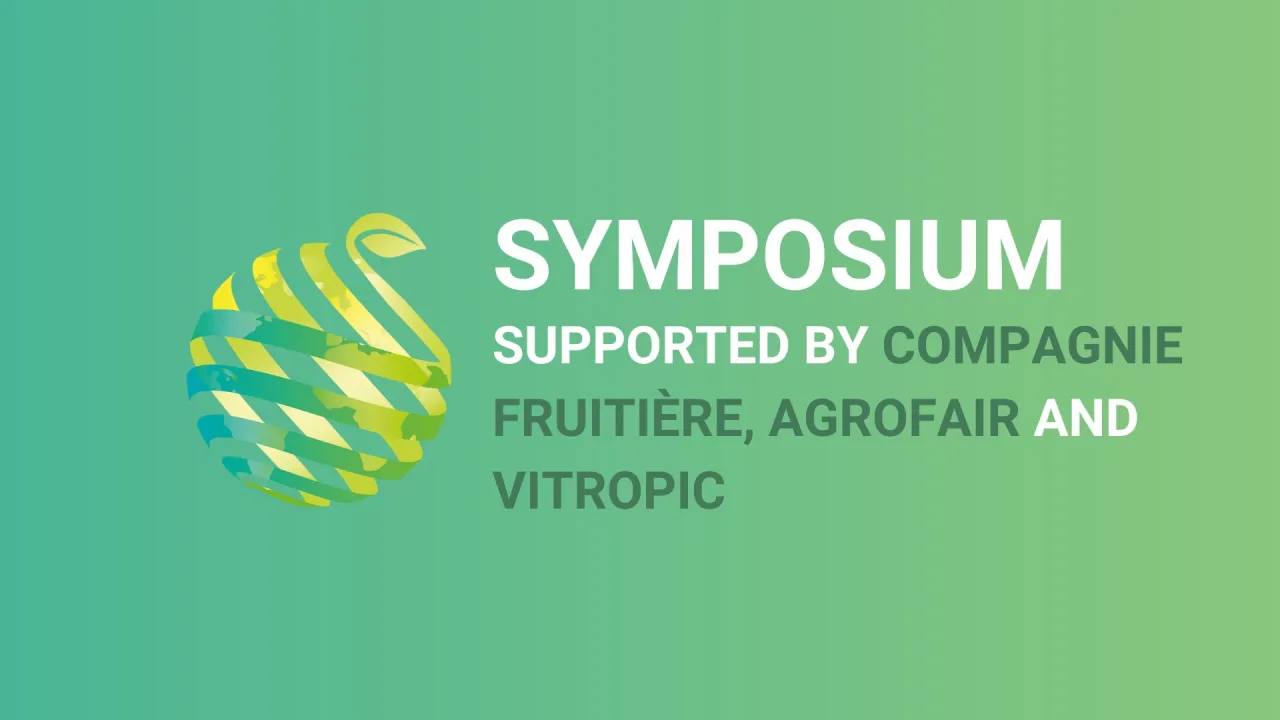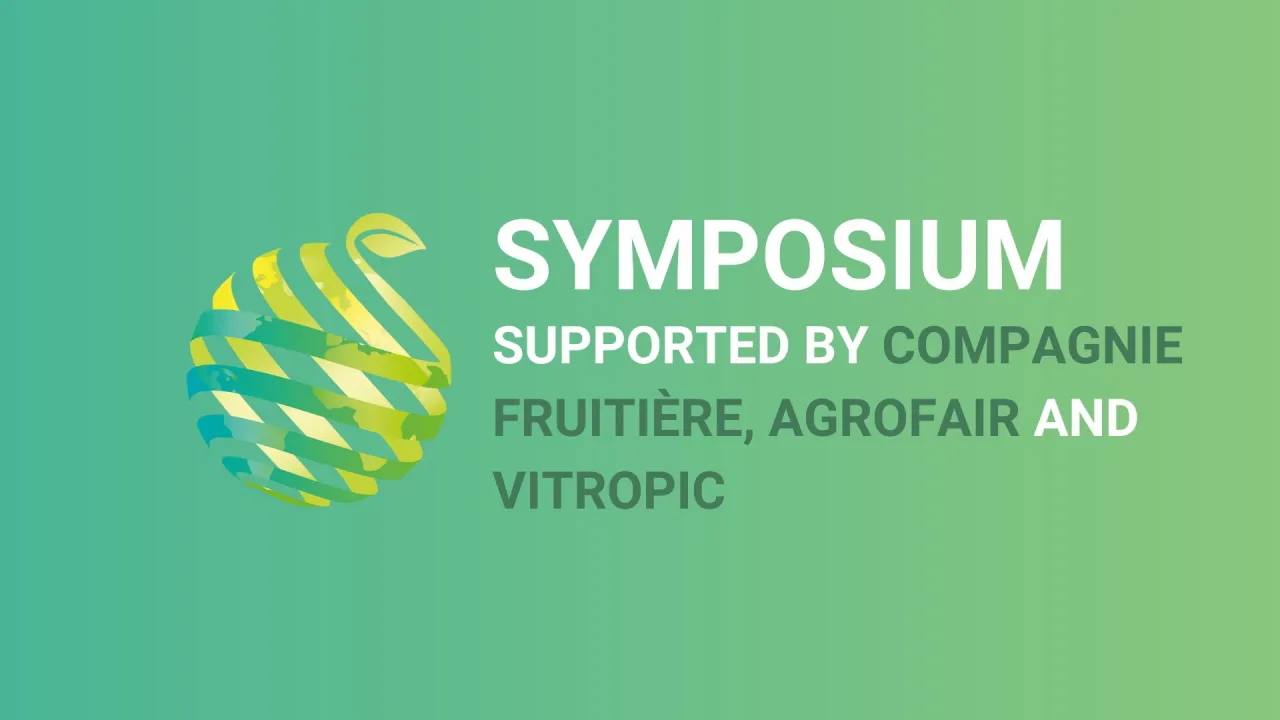

S21 XII INTERNATIONAL SYMPOSIUM ON BANANA : CELEBRATING BANANA ORGANIC PRODUCTION
Information
SCIENTIFIC COMMITTEE
Ajambo Susan, Uganda ; Blomme Guy, Ethiopia ; Normand Alain, France -Afrique ; Taulya Godfrey , Uganda ; Daniells Jeff, Australia ; Pattison Tony, Australia ; Dawson Carolina, France - Peru ; Legreve Anne , Belgium ; Lassois Ludivine, Belgium ; Tixier Philippe, France ; Roux Nicolas, France ; Salmon Frédéric, France ; Risède Jean-Michel , France ; de Lapeyre de Bellaire Luc, France ; Brat Pierre, France ; van der Waal Hans-Willem, Netherlands ; Fabrice Declerck , France ; Sauvadet Marie, Guadeloupe ; Bolaños Martha, Colombia ; Borges Ana Lucia , Brazil ; Dita Miguel, Colombia ; Sandoval Jorge, Costa Rica ; Rojas Juan Carlos, Peru ; Gandini Gustavo, Dominican Republic ; Dorel Marc, Guadeloupe ; Staver Charles, USA ; Coulis Mathieu, Martinique
INTRODUCTION
This symposium will focus on organic production: challenges and opportunities for productivity, competitiveness and certification faced with phytosanitary threats and climate variability.
The following topics will be developed during the symposium:
· Current state of organic production in the world: challenges and innovations
Production statistics: trade, trends, price comparisons including plantain and other cooking banana • Experiences in local production • Analysis of commercialization • Diversity of production systems (species, varieties, crop association & rotations, agroforestry, cattle
integration farming, biodynamic practices, etc.) • Comparison between dry and wet tropics zones • Economy gaps on small and larger farms • Participatory process, local knowledge • Synergies across food systems • Healthy diets: Organic Food and Nutritional Quality: role of organic products to human health ― is the quality of nutritional value different in terms of comparison of organic to non-organic • Improving livelihoods • Socio-economic challenges (e.g. gender) in managing organic banana systems
· Organic nutrition (plant): experience, and new directions
Diversity & efficiency of organic fertilizers (including organic matter methods) • Beneficial micro-organisms to improve plant nutrition • Alternative to synthetic N fertilizers (Urea, Ammonium fertilizers) • Quality of banana nutrition in organic systems • Detection of fraud (C/N isotopic methods, others) • Cost & economy of organic nutrition, bananas (production & trade) • Carbon footprint compared to conventional • Water management, water footprint (dry and wet regions) • Climate change impacts• Drought management
· Challenges of pest and disease control without conventional pesticides
Management of Black Sigatoka disease: efficiency of organic products, status of mineral oil, cultural practices, etc… • Management of root nematodes: organic products, cultural practices, etc… • Management of black weevils: trapping, efficiency of synthetic pheromones, physical barriers, entomo-pathogens use, … • Thrips, mealybugs & aphid control experiences in organic production • Weed management without herbicides • Post-harvest disease control without fungicides • Emergence of specific pest and diseases in organic production systems • Impact of fertilisation and cropping systems on pest & diseases control • Critical evaluation of biopesticides for pest and disease management in organic production • Environmental safety of organic pesticides • Resistant & tolerant varieties (Musa diversity & conventional & genome editing genetic improvement programs) • Safe movement of germplasm at local, regional, national, and global levels • FOC (R1-R4-TR4) mitigation and organic production • Biocontrol approaches for pest and disease mitigation • Intercropping and crop rotation approaches for disease mitigation (linked to: Impact of fertilisation and cropping systems on pest & diseases control)
· Marketing organic bananas: The role of Sustainable Development Goals (SDGs) on certification and emerging trends
Economy & costs on the diversity of certification labels • Public certification • Private certification • Official standards and regulations: differences between countries & continents (ex. USA, Europe, Japan, …), including transition status & delays • Analytical methods for organic certification: methods and data • Challenges of certification for local markets especially for small producers in developing countries • Future trends in the value chains • Improving livelihoods • Healthy nutritional diets • New markets • Efficiency and recycling: using fewer external resources • The organizational and change management challenges of organic production for small producer organizations in view of stricter legislation, aging farmers, and competitive pressure